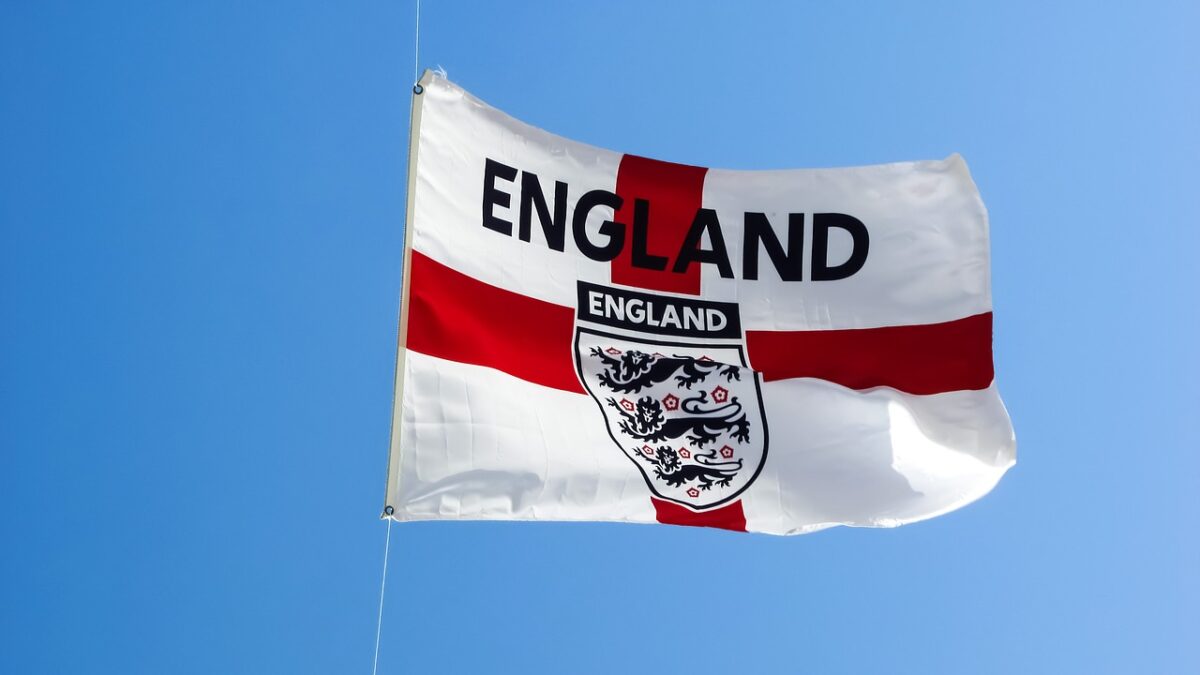13 Things Your Boss Wishes You Knew About Job Descriptions

Job descriptions are an integral part of the modern workplace. They serve as a blueprint for what is expected of new hires and current employees in their roles and can help ensure everyone is on the same page regarding their responsibilities and duties.
Understanding your job description is also beneficial for you as an employee. It can give you a clear understanding of what is expected of you (job performance) and help you set goals and targets for your career path and professional development.
Potential candidate and hiring manager recruitment tip: You can prepare for the job advertising and job interview process by researching the typical responsibilities, duties, skills, and education for the job in question. Our job description library contains more than 800 job description templates, such as our production engineer job description and nursery assistant job description. These sample job descriptions include relevant job tasks, qualifications, past experience, and interpersonal skills.
13 Things You Should Know About Job Descriptions
Here are the facts any boss, new job candidate, or current employees should know about job descriptions:
1. YOUR JOB DESCRIPTION IS A LEGALLY BINDING DOCUMENT
It is important to remember that your job description is a legally binding document. It outlines the specific responsibilities and duties you are expected to fulfil in your role and can be used as a reference in performance reviews or legal disputes.
Therefore, you must take the time to review and understand your job description thoroughly. If you have any questions or concerns about the duties outlined in your job description, be sure to speak with your manager or HR representative.
2. YOUR JOB DESCRIPTION MAY NOT LIST EVERY SINGLE TASK YOU ARE EXPECTED TO DO
While your job description serves as a broad overview of your role and responsibilities, it is essential to note that it may not list every task you are expected to do. Your job may involve a range of duties not specifically outlined in your job description.
This is because your job description serves as a general guide rather than a detailed to-do list. It is essential to be flexible and open to taking on additional tasks and responsibilities as needed to support the company’s needs and business strategy.
3. YOUR JOB DESCRIPTION CAN CHANGE OVER TIME
As your role and the company’s needs evolve, your job description may also change. Keeping an open line of communication with your manager about any changes to your job duties is vital, and to be proactive in seeking new opportunities for growth and development within your own career.
If you are unsure about any changes to your job description, be sure to ask your boss for clarification. This can help ensure that you are meeting the expectations of your manager and the company.
4. THE JOB DESCRIPTION SHOULD BE A COLLABORATION BETWEEN CURRENT EMPLOYEES AND THEIR BOSS
Your job description is not set in stone and should be seen as a collaborative document between both you and your boss. It is vital to have input and understanding of what is expected of you in your role, as this can help ensure that you are set up for success in your current job.
If you have any suggestions for changes or updates to your job description, don’t hesitate to speak up! Your boss is there to support you and help you succeed in your role. If you are unsure what to include in a job description, we recommend reading this useful article.
5. YOUR JOB DESCRIPTION SHOULD ACCURATELY REFLECT YOUR SKILL SET AND ABILITIES
It is important that your job description accurately reflects your skills and abilities. If your job is overly difficult or easy, it can lead to poor job satisfaction, frustration, or boredom.
If your job description does not accurately reflect your skills and abilities, you must speak with your boss about adjusting it. This can help ensure that you are challenged and engaged in your work and that you can contribute to the success of your current company.

6. YOUR JOB DESCRIPTION SHOULD NOT BE USED AS A MEANS OF MICROMANAGEMENT
Your job description should outline your general responsibilities rather than every task you are expected to do. Having a certain level of trust and autonomy in the workplace is crucial, and micromanaging every aspect of your job can be demoralising and stifle creativity.
If you feel that your job description is being used as a means of micromanagement, it is crucial to speak with your manager about this.
7. JOB DESCRIPTIONS SHOULD BE REVIEWED AND UPDATED REGULARLY
A job description should not be used only for creating job ads for job boards and the interview process. It is important to regularly review and update your job description to ensure that it accurately reflects your role and responsibilities. As your role and the needs of the company evolve, it is possible that your job description may need to be amended to represent the changing work environment.
Regular reviews and updates can help ensure that you are meeting the expectations of your current employer, are fairly compensated for your work, and can work towards your career goals.
8. IT IS ESSENTIAL TO ASK QUESTIONS IN YOUR JOB INTERVIEW IF YOU ARE UNSURE ABOUT SOMETHING IN YOUR JOB DESCRIPTION
Don’t be afraid to ask questions if you are unsure about anything in your job description. Most employers understand they are there to support you and help you succeed in your role, and it is crucial to ensure that you clearly understand what is expected of you.
If you are unsure about any aspect of your job, it is better to ask for clarification or assistance rather than trying to guess or assume. This can help prevent misunderstandings and mistakes.
9. YOUR JOB DESCRIPTION IS NOT A ONE-SIZE-FITS-ALL DOCUMENT
Remember that your job description is tailored to your specific role and responsibilities, and it may look different from the job descriptions of your co-workers. It is not a one-size-fits-all document and should not be used as a comparison tool with other employees.
Focus on meeting the expectations outlined in your own job description, and don’t worry about what others are doing. This can help ensure that you are successful in your role and contribute to the company’s overall success.
10. YOUR JOB DESCRIPTION SHOULD ALIGN WITH COMPANY GOALS AND VALUES
It is crucial to understand how your job fits into the bigger picture and aligns with the company’s goals, values, and culture. Your role should contribute to team success, and it is vital to understand how your work fits into the company’s mission, vision, and future.
This can help give you a sense of purpose and direction in your work and can help you stay motivated and engaged.

11. YOUR JOB DESCRIPTION SHOULD REFLECT YOUR LEVEL OF EXPERIENCE AND EXPERTISE
If your job description does not accurately reflect your level of experience and expertise, it may be time to talk to your manager. This can help ensure that you are fairly compensated and challenged in your role.
You may become bored or demotivated if your job description is too easy for you. On the other hand, if your duties are too tricky for you, you may become overwhelmed or frustrated. It is crucial to find the right balance.
12. IT IS IMPORTANT TO UNDERSTAND ANY SPECIFIC REQUIREMENTS OR QUALIFICATIONS OUTLINED IN YOUR JOB DESCRIPTION
Your job description may outline specific requirements or qualifications that are necessary for you to be able to perform your job duties successfully. Understanding and meeting these requirements is crucial to succeeding in your role.
If you do not currently meet these requirements, it may be worth discussing with your boss about obtaining additional training or education. This can help ensure that you are well equipped to perform your job duties to the best of your ability.
13. YOUR JOB DESCRIPTION SHOULD OUTLINE ANY POTENTIAL HAZARDS OR SAFETY CONSIDERATIONS IN YOUR ROLE
Understanding and following any safety guidelines or protocols outlined in your job description is crucial. Your job may involve specific hazards or safety considerations that you need to be aware of to prevent accidents or injuries.
If you have any concerns about safety in your role, it is important to speak with your boss or HR representative. They will be able to provide you with the necessary information and support to ensure that you can work safely and effectively.
Conclusion: The Importance Of Job Descriptions In The Workplace
Job descriptions are like the roadmap for your career journey. They provide a clear understanding of what is expected of you and can help guide you towards success in your job.
By understanding and following your job description, you can ensure that you are meeting the expectations of your manager and the company and make a valuable contribution to the organisation.
So, don’t underestimate the power of a good job description. Take the time to review and understand yours, and use it as a tool to help you navigate your way to success in your career.
Job Description FAQs
Here we answer questions on job descriptions from employees and employers.
A job description is helpful for several reasons. It serves as a blueprint for an employee’s expectations and can help ensure everyone is on the same page regarding their responsibilities and duties. It can also give employees a clear understanding of what is expected of them, which can help them set goals and targets for their personal and professional development.
A job description is also a legally binding document that outlines the responsibilities and duties prospective candidates are expected to fulfil in their jobs. It can be used as a reference in performance evaluations or legal disputes. Therefore, employees must take the time to review and understand their job descriptions thoroughly.
In addition, a job description can help employees understand how their role fits into the bigger picture and aligns with the company’s values and goals. It can also help ensure that an employee is fairly compensated and challenged in their role and that they have the necessary skills and qualifications to perform their job duties to the best of their ability. Overall, a job description is a valuable tool for both employees and employers in the workplace.
There are several ways in which staff members can use job descriptions to their advantage. One of the most important things is to review and thoroughly understand their job description. This means taking the time to read through the document and asking questions or seeking clarification if anything is unclear. A clear understanding of their responsibilities and duties can help employees set goals and targets for their future personal and career development.
In addition to setting goals, employees must understand how their role fits into the bigger picture and aligns with the company’s culture and aims. This can give them a sense of purpose and direction in their work. Job descriptions can also help employees identify any necessary skills or qualifications they may need to develop to succeed in their roles.
Another way that employees can use job descriptions is as a tool for communication with their line manager. If there are any changes or updates that they would like to suggest, they need to speak up and have open lines of communication with their boss. This can help ensure that their job description accurately reflects their role and responsibilities.
Finally, employees can use their job descriptions to identify opportunities for growth and development within their positions. This can help them stay engaged and motivated in their work and lead to further advancement within the organisation. Overall, job descriptions are a valuable resource for employees to understand their roles and duties, set goals, and identify opportunities for growth and development.
There are several ways in which potential employers can use job descriptions to their advantage. One of the primary purposes of a job description is to outline the duties and responsibilities of a role. This can help ensure that employees clearly understand their roles and what is expected of them. By summarising the tasks and duties a potential candidate is expected to complete, employers can set expectations for performance and use job descriptions as a reference when evaluating employee performance.
Another way that most companies can use job descriptions is to assist with the recruitment and hiring process. A well-written job description can help attract suitable candidates for job interviews and can be used to evaluate whether or not a potential candidate is a good fit for the company.
In addition to assisting with recruitment and the interview process, job descriptions can be used to communicate the company’s goals and values to employees. This can help ensure that employees align with these goals and values and can contribute to the company’s overall success.
Finally, job descriptions can be used to define the company culture and to attract employees who align with this culture. By clearly outlining the values and expectations of the company, employers can foster a positive company culture and create a cohesive and productive work environment. Overall, job descriptions are a valuable tool for a prospective employer to outline job duties and responsibilities, set expectations for performance, assist with recruitment and the hiring process, communicate company goals and values, and foster a positive company culture.
It is generally recommended that job descriptions be reviewed and updated at least annually. However, the frequency of updates may vary depending on the specific needs of the company and the role in question.
If there have been significant changes to the role, company, or team, updating the job description more frequently may be necessary. For example, if the responsibilities of a position have changed significantly or the company has undergone a reorganisation, it may be necessary to update the job description, skills, and duties more frequently.
On the other hand, if there have been no significant changes to the role or the company, it may be sufficient to review and update the job description yearly.
It is crucial to remember that a job description is a living document that should reflect the current needs and expectations of the company and the role in question. Therefore, it is essential to review and update job descriptions regularly to ensure that they accurately reflect current working conditions, expected work ethic, goals, and workplace culture.



